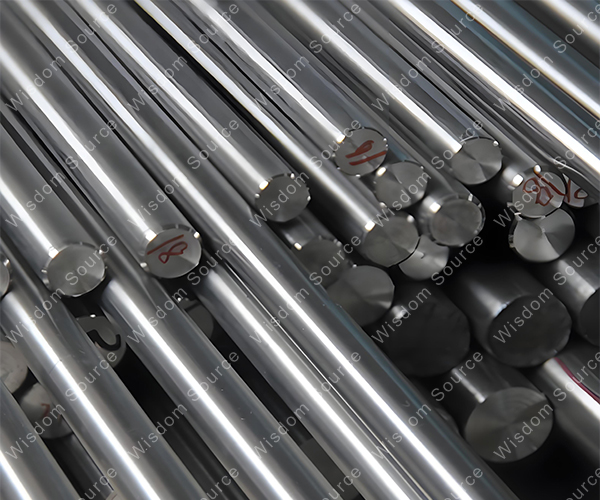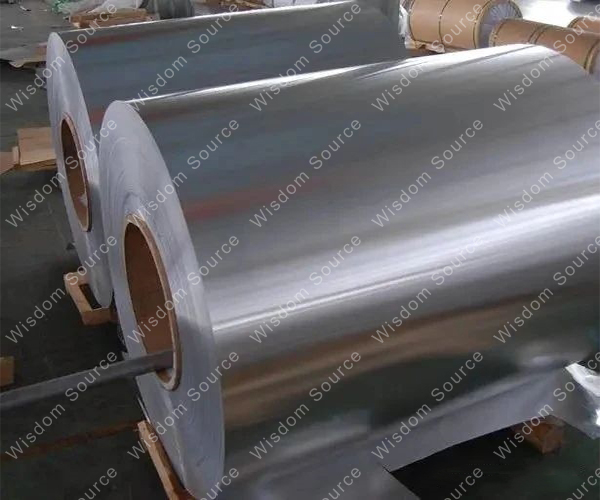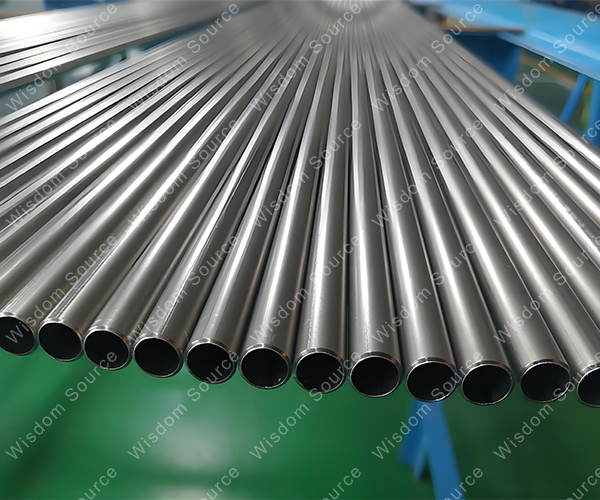Titanium: A magical Metal Element
Titanium: A magical Metal Element
In the large family of chemical elements, titanium has attracted much attention for its unique properties and wide range of applications. Titanium, with the chemical symbol Ti and the atomic number 22, has a silver-gray metallic luster in appearance, but many excellent properties are hidden under this low-key color.
1) One Of The Most Outstanding Characteristics Of Titanium Is Its Perfect Combination Of Low Density And High Strength
Compared with traditional metals, its density is relatively small, but it can withstand huge pressure and weight. This characteristic is as if it is tailored for the aerospace industry. In the field of aircraft manufacturing, titanium is widely used in the manufacture of engine components and fuselage frames and other key parts. As the “heart” of an aircraft, the engine is made of titanium alloy. The components can operate stably in harsh environments of high temperature and high pressure, while significantly reducing the overall weight of the engine and improving fuel efficiency. The fuselage frame is made of titanium material, which not only ensures the structural strength of the aircraft during flight, enough to cope with various airflow shocks and flight attitude changes, but also effectively reduces the weight of the aircraft itself and increases the passenger or cargo capacity, which has brought a huge impetus to the development of the aviation industry. For example, the famous Boeing 787 airliner uses a large number of titanium alloy materials, which has made major breakthroughs in performance and economy.

2) The Corrosion Resistance Of Titanium Is Even More Amazing
Whether it is in a salt-filled seawater environment, in humid air with high humidity, or under the erosion of corrosive chemicals such as acid and alkali, titanium can be safe and sound, and always maintain its own stability.In the chemical industry, many chemical reactions need to be carried out in specific containers and equipment, and many chemical substances are highly corrosive, making it difficult for ordinary metal materials to withstand for a long time.Titanium chemical equipment can easily cope with this problem, greatly extending the service life of the equipment, and reducing the safety risks and maintenance costs caused by equipment corrosion.In terms of marine engineering, seawater desalination plants and ship components have been in contact with seawater for a long time and face a serious threat of corrosion. The application of titanium ensures the reliability and durability of these devices and components, and provides a strong guarantee for solving the global shortage of water resources and the development and utilization of marine resources. For example, the core components of some large-scale desalination plants are made of titanium alloy, which can efficiently convert seawater into fresh water and operate stably for a long time.

3) Bio-compatibility Is Another Valuable Property Of Titanium
The human body tends to have rejection reactions to foreign substances, but titanium can coexist in harmony with human tissues. This makes titanium occupy an important place in the medical field. Artificial joints are a typical representative of titanium in medical applications. For those patients who suffer from joint diseases, titanium artificial joints can replace damaged joints and restore the normal function of joints. Due to its good biocompatibility, the human body will hardly reject it, greatly improving the success rate of surgery and the quality of life of patients after surgery. Dental implants are also an important application area of titanium. Titanium roots can be closely integrated with the alveolar bone to provide stable support for dentures, allowing patients to regain healthy and beautiful teeth and good chewing function.

Although titanium is relatively abundant in the earth's crust, it accounts for about 0.63% of the mass of the earth's crust, ranking fourth among metal elements, after aluminum, iron, and magnesium. But unfortunately, the refining process is extremely complicated. Common titanium ores such as rutile and ilmenite require multiple complex chemical and physical processes to extract titanium and apply it to industrial production. First, the ore must be processed and enriched, and then titanium is converted into titanium tetrachloride by high-temperature chlorination and other methods, and then sponge titanium is obtained by magnesium thermal reduction or sodium thermal reduction processes, and finally a series of steps such as refining can be used to obtain titanium metal or titanium alloy for industrial use. This series of complex refining processes is not only costly, but also extremely technically demanding. This also limits the large-scale popularization and application of titanium to a certain extent, but with the continuous progress of science and technology, the refining technology of titanium is gradually improving and improving.
Titanium, a metal element, has many advantages such as low density, high strength, strong corrosion resistance, and good bio-compatibility. It plays an irreplaceable and important role in many fields such as aerospace, chemical industry, marine engineering, and medical care. With the continuous development of science and technology, I believe that the application prospects of titanium will be broader. It will continue to shine in the journey of mankind to explore the unknown and improve their lives, provide a solid material foundation for innovation and progress in various industries, and become an important source of power to promote the development of modern science and technology and industry.
